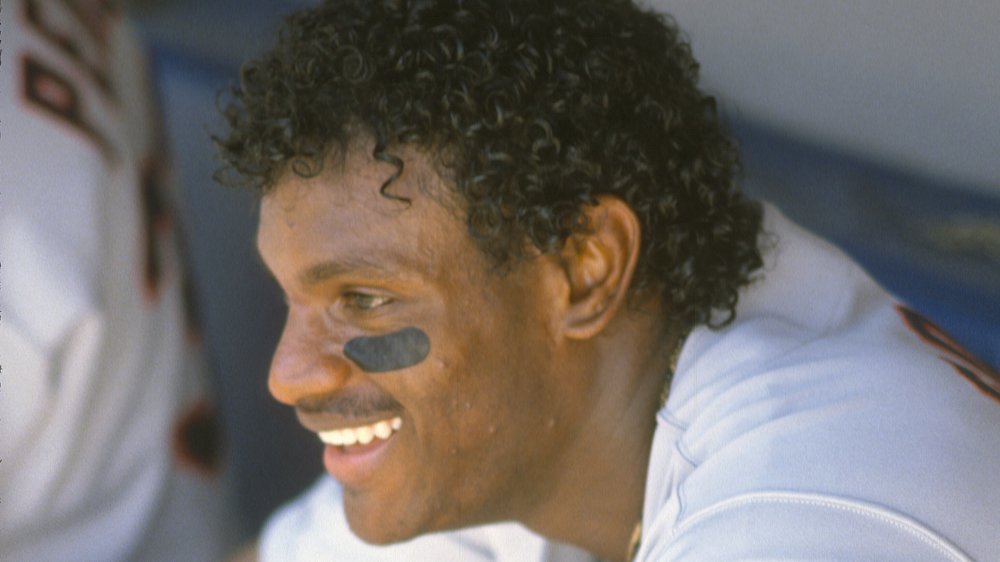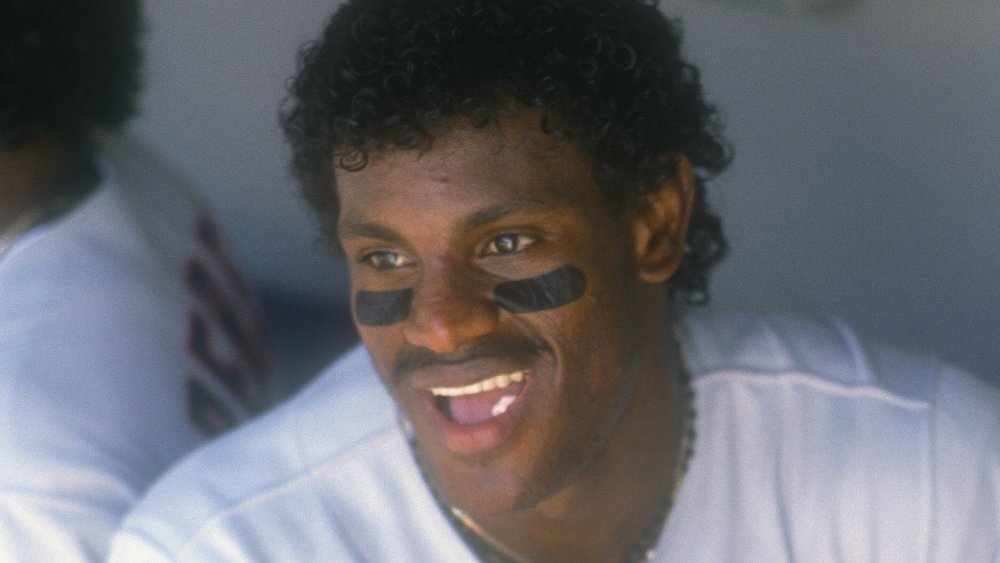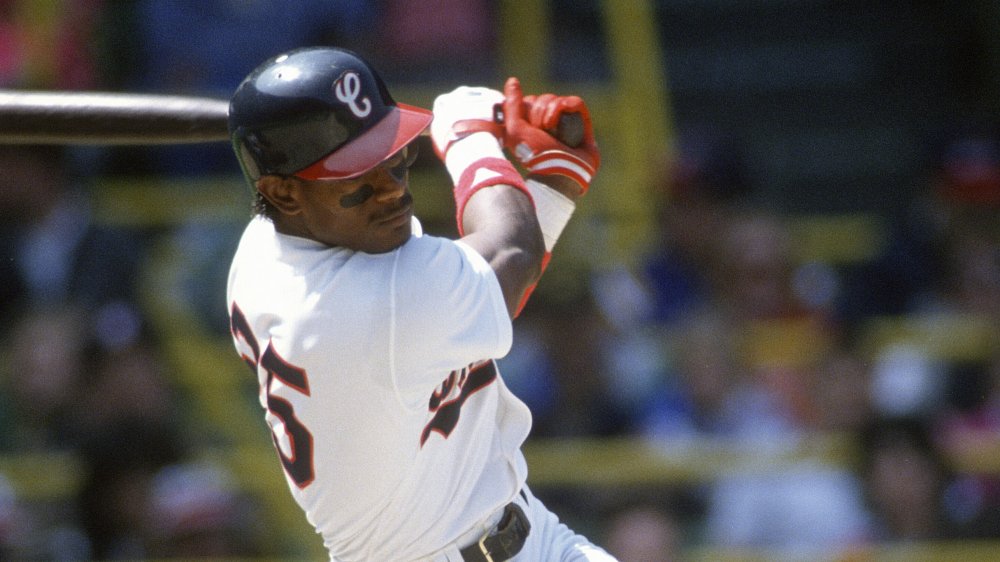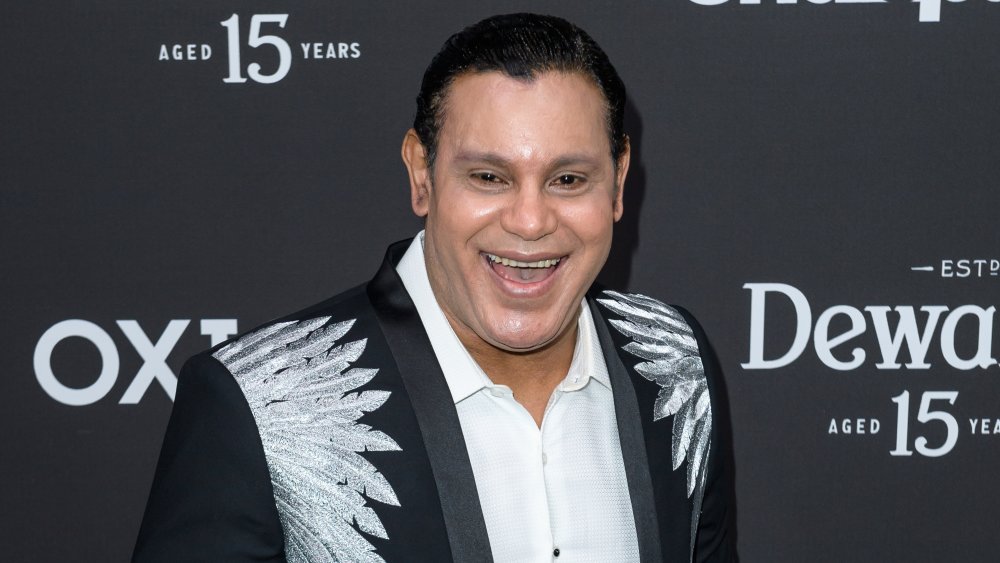What You Didn't Know About Sammy Sosa
It seems like such a long time since Sammy Sosa was considered the cream of the crop in Major League Baseball. He had a compelling story, too. Sosa had pulled himself out of poverty in the Dominican Republic, where he helped support his family. It was his natural skill and sheer love of baseball that propelled him forward. He was named the MVP for 1998. He surpassed the former MLB champion Roger Maris's home run record. By all accounts, with Sosa's record, he ought to be in the Baseball Hall of Fame by now. But that hasn't happened — and it might never happen.
Unfortunately, Sosa's once illustrious reputation has been overshadowed by scandal and illegal drugs. For many, this casts exteme doubt on Sosa's entire baseball career. Once his name was entangled with those involved in steroid abuse, Sosa's career never recovered. People would see him and other MLB players in an entirely new light — and not a favorable one. How did Sosa go from one of the most admired players in baseball to being among the most repudiated?
Sammy Sosa Had Rough Beginnings
Sosa didn't have the most comfortable early life. He was born poor in the Dominican Republic, where he lived in an abandoned hospital with his parents and five siblings. Things didn't get any easier when his father died when Sosa was only seven years old. This meant that Sosa, even though he was only a child, had to work to help support his family. According to his website, the only way someone as young as he could earn money was through odd jobs. He would take gigs like selling oranges on the street, or shining shoes, to help the family make ends meet.
Sosa's relief from hard work and poverty came in the form of baseball. He absolutely loved baseball, and he had a natural talent for the game. He began playing at the age of 14. He didn't have enough money to buy proper equipment, so he improvised, using a branch as a bat, a rolled-up sock for a ball, and a milk carton for a glove. Even using makeshift equipment couldn't diminish Sosa's natural aptitude for the sport. Sosa's incredible talent was so apparent that the Philadelphia Phillies wanted to sign him when he was only 15, reports the Baltimore Sun. They weren't able to because Sosa was still under the league's minimum age requirement of 16. But Sosa wasn't deterred. He continued to play in local leagues until he could make his debut with the Texas Rangers in 1989.
Sammy Sosa Was a Major League Star
Sosa did get to the Major Leagues, which had always been his dream. Now, he could really support his family, by doing something that he loved.
And he was considered a formidable player. Only five days after his debut with the Rangers, Sosa hit his first major league home run against Roger Clemens and the Boston Red Sox. Sosa ultimately didn't spend long with the Rangers. He was soon traded to the Chicago White Sox, and hit 15 home runs in his first season. Sosa spent three seasons with the White Sox until he was traded once again, this time to the Chicago Cubs. He would play with the Cubs from 1992 until 2004.
In the '90s, Sosa was widely recognized as a heavy home run hitter — he just kept wracking up those home runs. According to Biography, In 1998, Sosa and the St. Louis Cardinals' Mark McGwire were head-to-head to beat Roger Maris's record of 61 home runs in a single season. Although McGwire broke the record first and ended the season with 70 runs, Sosa still finished the baseball season with a total of 66 runs. And it was Sosa who was named the National League's Most Valuable Player (MVP) for 1998.
Sammy Sosa Became embroiled in a Massive Controversy
Although not an unusual occurrence, it can feel incredibly jarring when a big-name star becomes embroiled in a scandal. Sammy Sosa absolutely found himself in that position in the early 2000s, and he really has never fully recovered. In 2003, as noted by Biography, Sosa started missing crucial playing time. Then he was suspended for using a corked bat — a bat that is hollowed out and filled with lighter material, making it easier for the batter to swing faster, and definitely illegal in baseball.
But the real clincher came when Sosa's name came up in a 2005 investigation of steroid use among baseball players. Even McGwire was implicated in the scandal. (McGwire later admitted to taking steroids and issued an apology.) Sosa continues to deny that he took illegal drugs, despite reports by The New York Times and ESPN that Sosa's name was on a list of baseball players who tested positive for steroids. For Sosa, his career took a distinct downward turn. With the scandal, a back injury, and souring relationships, Sosa could never bring his career back to its former glory. His suspected use of skin bleaching cream, reported by Newsweek in 2017, hasn't exactly helped his reputation among fans, either.
While Sosa technically has the achievements to be inducted into the Baseball Hall of Fame, the steroid abuse scandal's dark cloud hangs heavily. Most are skeptical as to whether he'll ever have enough votes.



